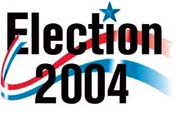
Sex-offender registry,
information
charging OK’d
State and city prosecutors will have a faster route to bring accused offenders to trial by direct filing of charges in a state Constitution amendment that was on the way to approval with 59.7 percent of state voters late last night.
Thousands of voters -- 10 percent to 13 percent on each question -- had no opinion, and their blank ballots threatened to sink one measure. A constitutional amendment requires approval by a majority of the total votes cast; a blank space counts as a "no" vote.
A proposal making communications between a crime victim and the victim's doctor or psychological counselor inadmissible in court won, but it was jeopardized by the weight of blank ballots.
"The rule is ridiculous and it needs to be changed," said Honolulu Prosecutor Peter Carlisle. "The people who vote 'yes' clearly outnumber the 'no' votes, but the blank votes bring a chance that it will fail. That beggars common sense."
Carlisle applauded the passage of the amendments. He and state Attorney General Mark Bennett identified them as victim's rights issues in a pre-election informational campaign.
The American Civil Liberties Union and defense attorneys opposed them, particularly the measure that establishes an alternative method of bringing felony charges. In the new process, the prosecutor will file a document presenting his case for a felony charge. A judge will decide if there is enough evidence to go forward with a trial.
Currently, defendants have the right to a preliminary hearing where they can question their accusers, or to have a grand jury hear witnesses and decide if there is probable cause to file charges.
Some 68.2 percent of voters were in favor of allowing jurors to convict a defendant of "continuous" sexual assault if they agree the accused sexually assaulted a child three times within a specific period.
www.hawaii.gov/elections
